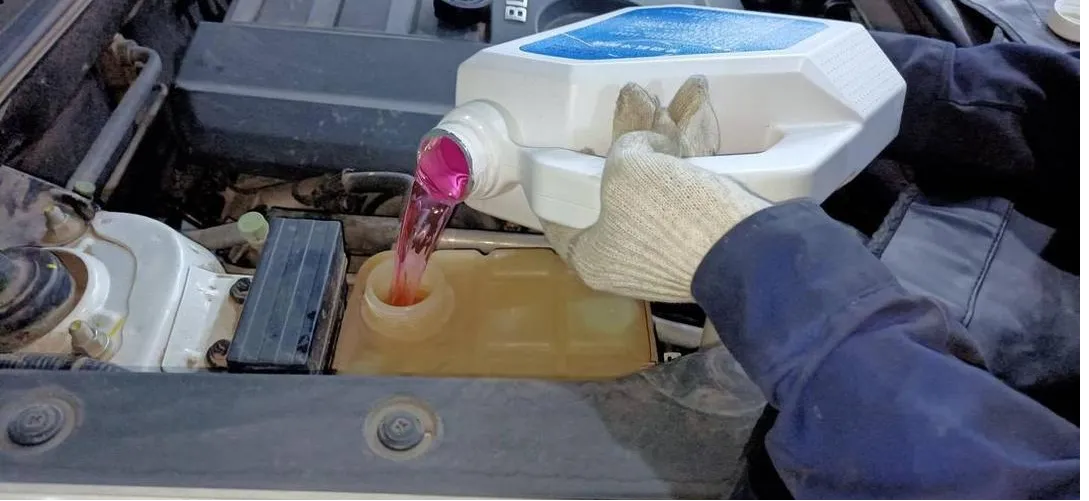
Exploring Anti-Foaming Agents: From Wholesale Gypsum Set Retarder XYSJN1 to Industrial and Pharmaceutical Applications
Understanding Anti-Foaming Agents and Chemicals
In modern manufacturing, foam can cause severe problems—reducing product quality, slowing production, and even damaging equipment. This is where Antischaummittel step in to maintain efficiency and consistency. Whether you're looking at antifoaming chemicals for industrial systems or an anti foaming agent pharmaceutical for medicine production, knowing the right solution is critical.

What Are Anti-Foaming Agents?
An anti foaming agent (also known as a defoamer) is a chemical additive that reduces or prevents foam formation in liquids. Foam occurs due to trapped air, surfactants, or turbulence during industrial processes.
Here are some examples of anti foaming agent types:
Silicone-based agents: Polydimethylsiloxane (PDMS) is widely used in food, pharmaceuticals, and oil refining.
Organic anti foaming agent: Natural vegetable oils and fatty acid esters are eco-friendly and ideal for food-grade applications.
Mineral oil-based defoamers: These are preferred for metalworking fluids and coolants.

Key Applications of Anti-Foaming Agents
Pharmaceutical industry: Foam can disrupt critical processes like fermentation. Anti foaming agent pharmaceutical grades, such as simethicone, are FDA-approved for safe use.
Coolants and lubricants: Foam in coolants reduces heat transfer efficiency. Using an anti foaming agent for coolant ensures stable system performance.
Construction materials: Foam during cement production is controlled using additives like Großhandel Gipsabbindeverzögerer XYSJN1, which not only delays setting time but also prevents air entrapment.
Below is a summary table of antifoaming agents examples:
|
Type |
Example |
Application |
|
Silicone-based |
Polydimethylsiloxane (PDMS) |
Pharmaceuticals, food processing, coatings |
|
Mineral oil-based |
Polyalkylene glycols |
Metalworking, industrial coolants |
|
Organic anti foaming agent |
Vegetable oil esters |
Food & beverage, environmentally friendly |
|
Specialty chemical blends |
Proprietary formulations |
Pulp & paper, wastewater treatment |
Applications of Chemical Antifoam Agents Across Industries
Anti-Foaming in Coolants and Lubricants
In industrial machinery, foam in coolant systems can reduce efficiency and even cause cavitation damage. Using a chemical antifoam agent in these systems minimizes foam build-up and ensures smooth operation. The ideal anti foaming agent for coolant is silicone-based or mineral oil-based to handle high heat and shear environments.
Pharmaceutical and Food-Grade Applications
The anti foaming agent pharmaceutical category is designed for high-purity and safety. These agents must meet strict pharmacopeial standards to ensure they don’t compromise drug integrity. Simethicone is the most common agent in this category. Similarly, an organic anti foaming agent, derived from natural oils, is preferred for food and beverage applications where eco-labels and sustainability are crucial.
Foam Control in Construction Materials
In cement and drywall production, foam leads to poor strength and cracking. Großhandel Gips Set Verzögerer XYSJN1 is a dual-purpose additive that delays the setting of gypsum while also acting as a foam control agent, ensuring smoother mixtures and durable final products.
Why Choose Specialty Antifoaming Chemicals?
Selecting the right anti foaming chemicals depends on:
Environmental concerns: Organic anti foaming agent options are biodegradable.
Regulatory compliance: Industries like pharmaceuticals and food require FDA- or EU-approved agents.
Cost efficiency: Bulk purchases like Großhandel Gipsabbindeverzögerer XYSJN1 provide excellent value for large-scale projects.
FAQs About Anti-Foaming Agents
What is wholesale gypsum set retarder XYSJN1, and how does it help with foam control?
Wholesale gypsum set retarder XYSJN1 is an additive used in construction to delay the setting of gypsum and cement. It also helps prevent foam formation during mixing, resulting in a smoother and more durable final product.
What are some examples of anti foaming agents used in different industries?
Common antifoaming agents examplesinclude silicone-based compounds like polydimethylsiloxane for pharmaceuticals, mineral oil-based defoamers for coolants, and organic vegetable oil esters for food-grade applications.
How is an organic anti foaming agent different from a chemical antifoam agent?
An organic anti foaming agentis derived from natural sources like vegetable oils, making it biodegradable and suitable for environmentally sensitive applications. In contrast, a chemical antifoam agentis synthetic and often designed for high-performance industrial systems.
Why is an anti foaming agent for coolant important in machinery?
Foam in coolant systems can trap air bubbles, reduce heat transfer, and cause damage to pumps and pipes. Using an anti foaming agent for coolantensures efficient operation and protects equipment from wear and tear.
What makes an anti foaming agent pharmaceutical safe for medical use?
An anti foaming agent pharmaceuticalis manufactured under strict quality standards to ensure purity and safety. Agents like simethicone are FDA-approved and widely used to control foam during drug manufacturing and in oral liquid medications.
Foam control is a vital but often overlooked part of industrial and pharmaceutical manufacturing. Whether you're considering antifoaming agents examples for coolant systems, chemical antifoam agents for wastewater treatment, or anti foaming agent pharmaceutical solutions for safe medication production, the right choice enhances efficiency, product quality, and regulatory compliance.
For the construction industry, additives like Großhandel Gipsabbindeverzögerer XYSJN1 combine foam suppression with set retardation, offering a dual advantage. By selecting the right anti foaming chemicals tailored to your needs, you can avoid costly disruptions and improve overall process reliability.
-
Hydroxypropyl Starch as a Sustainable Construction AdditiveNewsNov.24,2025
-
The Gelation Properties of CMCNewsNov.21,2025
-
Redispersible Latex Powder and Water Retention CapacityNewsNov.21,2025
-
Dosage Control for Polycarboxylate Water ReducerNewsNov.21,2025
-
Film-Forming Properties of Polyvinyl AlcoholNewsNov.21,2025
-
The Function of Gypsum Additives in MortarNewsNov.21,2025





















